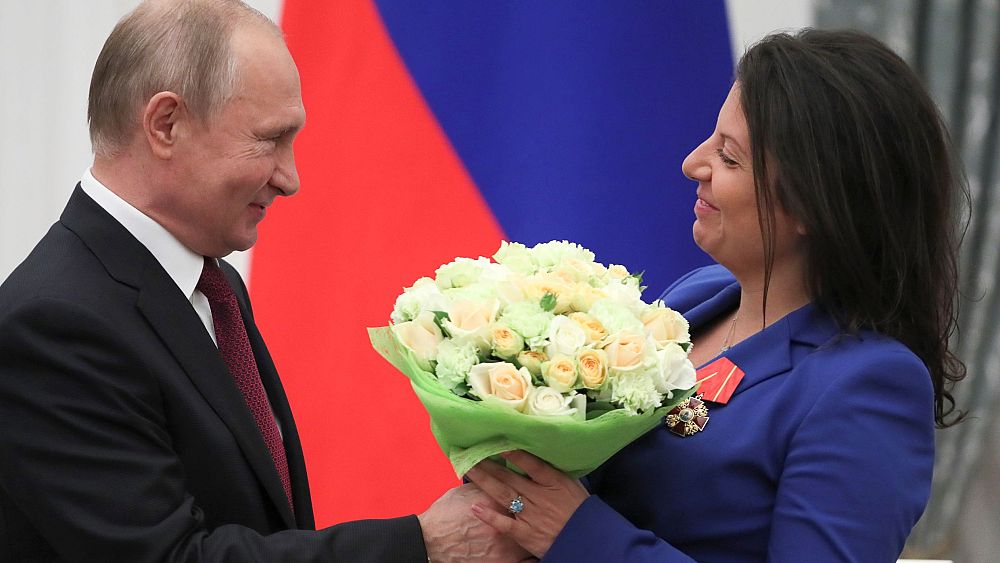
YouTube could face restrictions in Russia after it deleted two German-language channels operated by Russian state-controlled RT.
YouTube said it deleted the channels on Tuesday after they breached its policy on COVID-19 misinformation.
Russia’s foreign ministry responded by accusing the Google-owned company of taking part in an “information war” against Russia and threatened “retaliatory measures” against the company and German media outlets.
According to YouTube’s COVID-19 medical misinformation policy, the company does not allow content that “spreads medical misinformation that contradicts local health authorities’ or the World Health Organization’s medical information about COVID-19”.
It also bans videos about COVID-19 that pose “a serious risk of egregious harm”.
How did this all start?
RT’s German-language channel RT DE was issued a warning for uploading content that violated YouTube’s COVID misinformation policy, which left the channel unable to upload videos for a week.
During that time, RT tried to get around the uploading ban by using another German-language channel, “Der Fehlende Part”, which translates to “the missing part”.
“As a result both channels were terminated for breaking YouTube terms of service,” a YouTube spokesperson said.
Following the channel deletions, RT’s editor-in-chief Margarita Simonyan went on the offensive, calling YouTube’s decision “a real media war declared by the state of Germany to the state of Russia”.
Simonyan also called for Russia to sanction YouTube, ban German media outlets and close the Moscow bureaux of German broadcasters ARD and ZDF.
Euronews Next has asked YouTube for comment.
Russia’s foreign ministry threatens retaliation
In a statement released on Tuesday, Russia’s foreign ministry described the actions by YouTube as “unprecedented information aggression”.
“This obvious manifestation of censorship and suppression of freedom of expression cannot and will not be considered,” it added.
The ministry accused YouTube of colluding with German authorities to “silence information sources that do not fit into what the German officials view as a comfortable media landscape”.
It said it had asked Russian authorities to draft and enforce”retaliatory measures regarding YouTube video hosting service and the German media”.
Russia’s state communications watchdog, Roskomnadzor, demanded that Google restore access to RT’s YouTube channels and threatened the platform with fines and a ban if it fails to do so.
‘Conspiracy theory’
In Berlin, German government spokesman Steffen Seibert said the government has “taken note” of the YouTube decision, but denied any role.
“Since there are different accounts, particularly on Russian channels, I want to say in crystal-clear terms that this is a decision by YouTube, and the German government, or representatives of the German government, have nothing to do with this decision,” Seibert told reporters.
“So anyone who alleges that is putting together a conspiracy theory”.
Siebert added that calls for retaliation against German media outlets were unjustified.
“Anyone who calls for such retaliation…doesn’t show a good relationship with press freedom, from our point of view,” he said.
German security services have said they consider RT’s German service to be a propaganda arm of the Russian state.
RT, previously known as Russia Today, provides its German offering online but so far lacks a license to broadcast in Germany via a terrestrial or satellite signal.